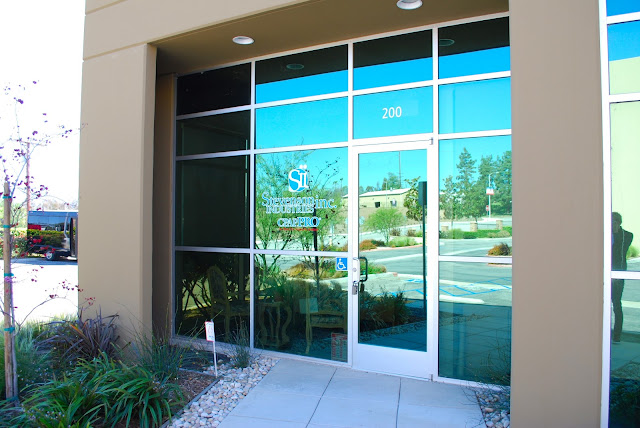CPAP Pro® knows very well the difficult choice sleep apnea sufferers must make: What type of masks exist? How much are they? And what mask should I get? A CPAP mask - or Continuous Positive Airway Pressure, - is a method often recommended by physicians in order to treat apnea. In this article, CPAP Pro will highlight some of the pros and cons that follow certain apnea masks. We will present the three variants available on the market, ranked by how comfortable and really - how tolerable - it is to wear. All the product variants have certain pros and cons, and some may fit or suit some individuals more than others. It is important to note that this information is not intended to be a substitute for consulting with a sleep specialist or physician.
3. Full Face Mask
The traditional full-face variant is slowly pacing out, although many patients find these masks to be the most trusted. These cover the patient's entire facial area, including mouth and nose. The problem with these is often the discomfort or claustrophobic effects of wearing the headgear and/or straps holding the mask in place. These may still be recommended to certain patients, maybe, particularly those in need of relatively high airway pressure. The full-face options have been proven to cause the most airway pressure leaks, and it is not recommended for active sleepers or those with claustrophobic tendencies. The airway will however feel less direct with the full-face rather than the interface nasal pillows (mentioned below). The full headgear and heavyweight may be a pain to some, but others describe it as a more stable and secure way of receiving airway flows. Sleeping on the stomach is not possible with the full face, and it will often leak due to facial hair, unlike nasal and interface nasal pillows.
See Also: How CPAP Saves Lives!
The traditional full-face variant is slowly pacing out, although many patients find these masks to be the most trusted. These cover the patient's entire facial area, including mouth and nose. The problem with these is often the discomfort or claustrophobic effects of wearing the headgear and/or straps holding the mask in place. These may still be recommended to certain patients, maybe, particularly those in need of relatively high airway pressure. The full-face options have been proven to cause the most airway pressure leaks, and it is not recommended for active sleepers or those with claustrophobic tendencies. The airway will however feel less direct with the full-face rather than the interface nasal pillows (mentioned below). The full headgear and heavyweight may be a pain to some, but others describe it as a more stable and secure way of receiving airway flows. Sleeping on the stomach is not possible with the full face, and it will often leak due to facial hair, unlike nasal and interface nasal pillows.
See Also: How CPAP Saves Lives!
2. Nasal CPAP Mask
Covering the nose, these are ideal for sleepers who breathe through their nose. Amongst the more popular, these only cover a small portion compared to the more conventional full-face options. Similar to the full-face option, these are also often recommended to patients in need of high-pressure settings. It is however not recommended for mouth-breathers, as it only provides airway flows through the nose. These often do provide the most direct airway pressure, but the strong airflow may feel discomforting and/or annoying to some. Unlike nasal pillows, nasal masks do cover your sinuses and can therefore lead to discomfort and/or pain. Without further due, let us present to you the number one way of treating apnea comfortably: nasal pillows.1. Nasal Pillow
These light and comfortable mask variants are a trending way of treating sleep apnea. Smaller, lighter, and often more comfortable, interface nasal pillows might be the most pleasant way of treating apnea. What’s a better method of receiving continuous positive airway pressure through the night? This is also why our founder Joseph L. Goldstein invented our revolutionary NoMask. With no painful or irritating straps nor strings or headgear, it is truly the best option on the market for treating your sleep apnea in the most comfortable way. If you already have a traditional full-face mask, why not update your device to something more pleasant? Regain your freedom to twist and turn at night. Our CPAP products are FDA tested and approved. Nasal pillows are also known to cause less airway leaking and are the best type for those who move, twist, or turn during sleep.
Contact us for more information on our revolutionary product. Make sure to ask about Joe’s story! Our owner and founder, Joesph “Joe” Goldstein, is an apnea patient himself who invented the NoMask as a result of all the bad, irritating, and discomforting treatments available on the market. Joe is also the author of a best-selling book on his story and invention, entitled Snoring Can Kill!!: Discover How Sleep Apnea Can Be Ruining Your Life (1999).
Contact us for more information on our revolutionary product. Make sure to ask about Joe’s story! Our owner and founder, Joesph “Joe” Goldstein, is an apnea patient himself who invented the NoMask as a result of all the bad, irritating, and discomforting treatments available on the market. Joe is also the author of a best-selling book on his story and invention, entitled Snoring Can Kill!!: Discover How Sleep Apnea Can Be Ruining Your Life (1999).
Please note that the author is not a physician nor a sleep specialist. Consult your doctor before using any medical procedures and treatments that take place, including apnea treatments. The information provided in this article should not be taken as medical advice or as an alternative to consulting an apnea specialist. All masks are different and certain CPAP mask options work better for some individuals.



